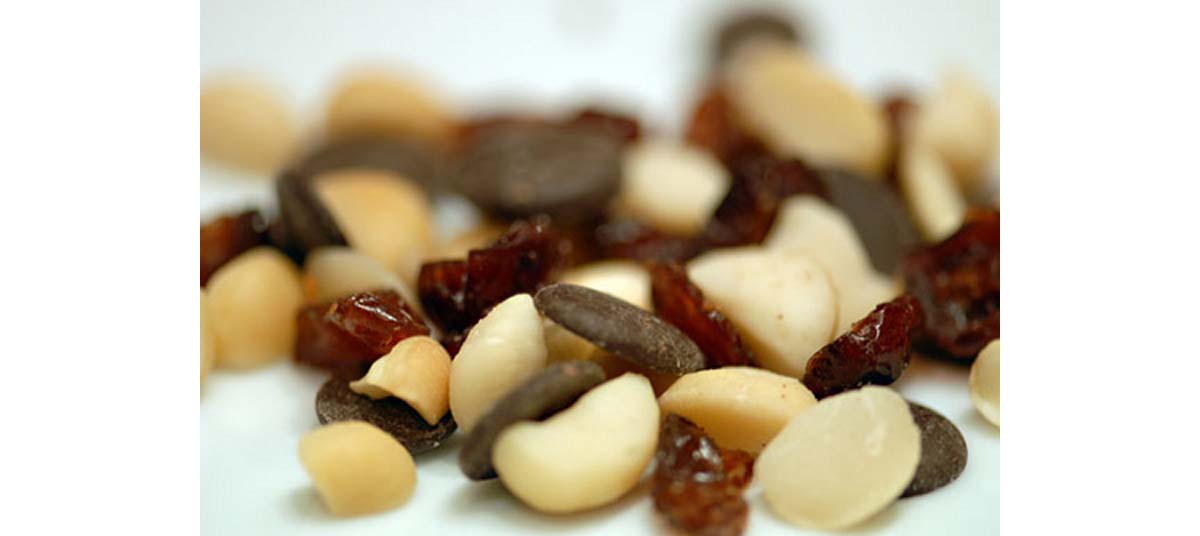
There are some natural products that have had some reported success in helping people with AD. Most physicians and researchers will suggest a diet high in anti-oxidants—in other words, a diet high in berries, fruits and vegetables. Certain vitamins, like Vitamin C, A and E are potent anti-oxidants. Minerals such as selenium and zinc function as anti-oxidants as well. Again, the main sources of these vitamins and minerals are whole, unprocessed fruits, vegetables, grains and leafy greens.
CoQ10 (COENZYME Q10, UBIQUINONE)
Another natural agent that has been used in AD is CoQ10. CoQ10 is found naturally in every cell in the body and is very potent anti-oxidant. Part of the problem with using CoQ10 as a supplement is that it is not very well absorbed if you take it as a capsule or pill—it doesn’t dissolve well in water, so it has to be taken in a fat-soluble form. When is IS taken in an appropriate form, CoQ10 has been shown to have positive effects in AD—though the number of studies done to date is relatively small. It has been more extensively studied in relationship to heart disease.
Ginkgo biloba

Some herbs have shown promise in the treatment of AD as well. One, ginkgo biloba has been used for centuries in Traditional Chinese Medicine (TCM) to treat the forgetfulness associated with aging. Ginkgo is an anti-oxidant, anti-inflammatory and increases blood flow to the brain. A recent study by the National Center for Complementary and Alternative Medicine (NCCAM), however, showed no significant benefit in using Ginkgo for cognitive decline.
One comment on this study is the amount of Gingko used is less than is commonly given (and in a different form).The fact remains, though, that we don’t have solid evidence for the use of Ginkgo to treat AD. On the other hand, many people report that they, or the people they are caring for, DO seem to benefit. The only caveat I would add is that if someone is on blood thinners (anti-coagulants), they should let their physician know that they are using Ginkgo—the reason is that there is some evidence that high levels of Ginkgo can cause clotting problems.
Read More: Is It A "Senior Moment" Or Is It Alzheimer's?
Huperizine A
Huperizine A is another natural substance derived from a moss known as Huperzia serrata and has also been used in TCM for centuries. It appears to act as a cholinesterase inhibitor and has therefore captured some interest.

Omega-3 fatty acids
Two other natural supplements bear mention when talking about AD. One is the omega-3 fatty acids found in fish oil. There is some evidence that these are beneficial in AD patients.
Phosphotidylserine
Finally, there is a type of fat that is found in all cells, but particularly in brain cells - phosphotidylserine (PTS). Studies have also shown that PTS is useful in preventing the cognitive decline and helping with memory function. It’s also been used to help people fall asleep and stay asleep - probably one reason it helps in cognitive function - you can’t think when you are too tired!
Revolutionary Alternative: Curcumin
Curcumin, the active compound found in turmeric, has gained attention for its potential benefits in Alzheimer's disease. While research is ongoing, several studies have explored the effects of curcumin on Alzheimer's disease pathogenesis and cognitive function.
-
Anti-inflammatory and antioxidant effects: Chronic inflammation and oxidative stress are believed to contribute to the development and progression of Alzheimer's disease. Curcumin has been found to possess anti-inflammatory and antioxidant properties, which may help protect brain cells from damage caused by these processes.
-
Amyloid-beta plaques: Amyloid-beta plaques, abnormal protein deposits, are a hallmark of Alzheimer's disease. Curcumin has been shown to have potential effects on reducing the formation and accumulation of amyloid-beta plaques.
-
Tau protein tangles: Tau protein tangles are another characteristic feature of Alzheimer's disease. Curcumin may have a role in preventing the formation and progression of tau tangles.
-
Neuroprotective effects: Curcumin has been suggested to possess neuroprotective properties by promoting the growth and survival of neurons. It may also enhance the clearance of abnormal proteins and improve synaptic plasticity.
While these studies show promising results, it's important to note that curcumin faces challenges in terms of poor bioavailability and limited penetration through the blood-brain barrier. Researchers are exploring various formulations and delivery methods to enhance curcumin's effectiveness in reaching the brain.
- www.alzinfo.org/07/treatment-care/what-drugs-are-approved-for-alzheimers-disease
- Dhanasekaran M, Ren J. The emerging role of coenzyme Q-10 in aging, neurodegeneration, cardiovascular disease, cancer and diabetes mellitus. Curr Neurovasc Res. 2005 Dec,2(5):447-59
- Langsjoen PH, Vadhanavikit S, Folkers K. Effective treatment with coenzyme Q10 of patients with chronic myocardial disease. Drugs Exp Clin Res. 1985,11(8):577-9
- http://nccam.nih.gov/research/results/spotlight/20091229.htm
- Zangara, A., The psychopharmacology of huperzine A: an alkaloid with cognitive enhancing and neuroprotective properties of interest in the treatment of Alzheimer's disease. Pharrmacology Biochemistry and Behavior Volume 75, Issue 3, Pages 675-686, 2003
- Itua, I, Naderali, EK, Omega-3 and Memory Function: To Eat or Not To Eat, AMERICAN JOURNAL OF ALZHEIMERS DISEASE AND OTHER DEMENTIAS Volume: 25 Issue: 6 Pages: 479-482, 2010
- Vakhapova, V, Cohen, T, Richter, Y, et al. dylserine Containing omega-3 Fatty Acids May Improve Memory Abilities in Non-Demented Elderly with Memory Complaints: A Double-Blind Placebo-Controlled Trial, : DEMENTIA AND GERIATRIC COGNITIVE DISORDERS Volume: 29 Issue: 5 Pages: 467-474 Published: 2010
- Mishra S, Palanivelu K. The effect of curcumin (turmeric) on Alzheimer's disease: An overview. Ann Indian Acad Neurol. 2008 Jan, 11(1):13-9. doi: 10.4103/0972-2327.40220. PMID: 19966973, PMCID: PMC2781139.
- S.D. Voulgaropoulou, T.A.M.J. van Amelsvoort, J. Prickaerts, C. Vingerhoets, The effect of curcumin on cognition in Alzheimer’s disease and healthy aging: A systematic review of pre-clinical and clinical studies, Brain Research, Volume 1725, 2019, 146476, ISSN 0006-8993, https://doi.org/10.1016/j.brainres.2019.146476.

